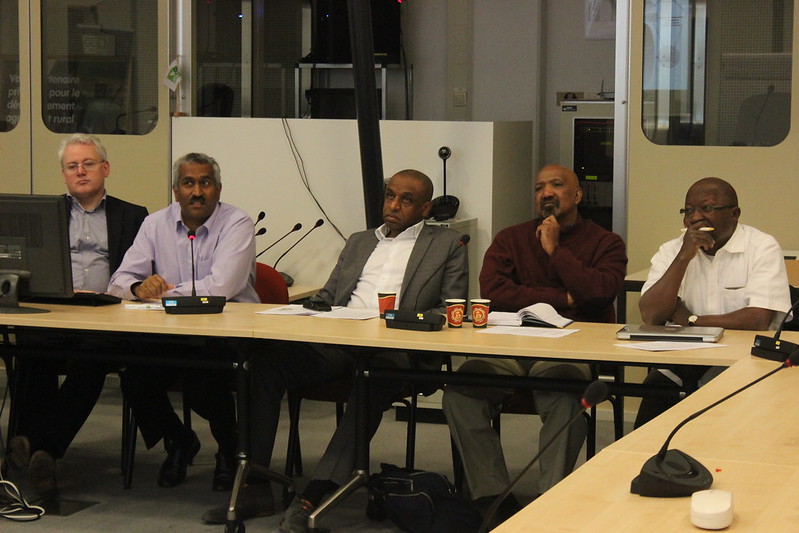 14-15 January 2016. AFAAS, an organisation for strengthening Africa-wide agricultural extension
14-15 January 2016. AFAAS, an organisation for strengthening Africa-wide agricultural extension and advisory services, has recently reviewed its 2015-2017 strategy, and has identified knowledge management (KM) as a key focal area. CTA’s expertise in KM will help support AFAAS in its new strategic direction.
As well as Dr Nahdy, the AFAAS delegation included Dr Dan Kisauzi, AFAAS technical adviser on knowledge management and communication and Max Olupot Olalatau, partnership officer and technical assistant to the executive director. The team had close discussions with CTA’s technical staff, facilitated by Krishan Bheenick, senior programme coordinator for KM and Dr Benjamin Kwasi Addom, ICT4D programme coordinator. Dr Ibrahim Khadar, CTA’s head of the learning monitoring and evaluation unit, presented practical areas where CTA could support AFAAS including on agricultural policies, markets and value chains, and ICTs for agriculture, learning and KM.
 As a process with huge potential for impacting farmers in its new strategy, AFAAS made a
As a process with huge potential for impacting farmers in its new strategy, AFAAS made a presentation on Country Fora (CF), which are ‘communities of practice’ that bring together a wide range of actors and stakeholders involved in - or benefitting from - rural advisory services in a country. Each stakeholder has an interest in extension but are not necessarily extension workers themselves.
“The CF process can make good use of CTA’s wealth of information for innovations and how to reach farmers. Whether it is information on climate-smart agriculture, value chains or the use of certain ICT tools,” said Dr Nahdy. “Working collaboratively with CTA and our networks for short, medium and long-term sustainability in African countries’ extension and advisory services is key for both CTA and AFAAS,” he added.

No comments:
Post a Comment